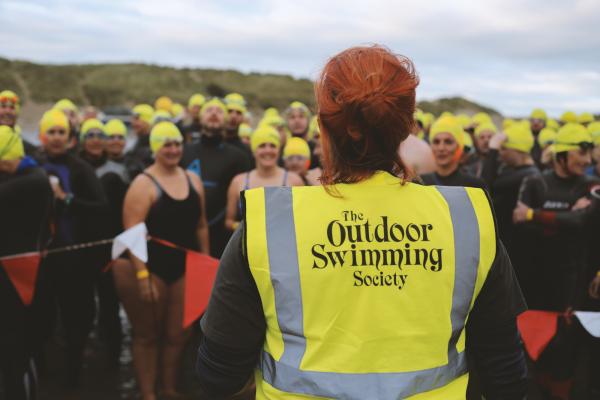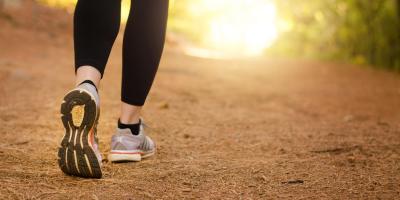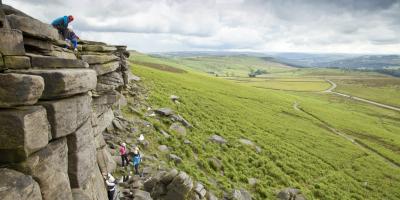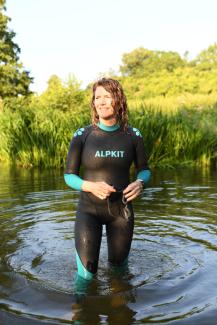
Tell us about the foundations of the Outdoor Swimming Society.
The Outdoor Swimming Society (OSS) was basically a happy accident. I was at a point in my life where I’d started swimming more often, and a friend and I decided to go on a swimming trip to the Lake District. It was late autumn, during a huge storm, and dark by the time we got there, but we managed a swim in Buttermere. As we lay in our beds that night, I resolved that we should really get more people into this.
That was 2006, and it was groundbreaking then. It seemed really radical. I thought, why don't we actually set out to go for a swim, and go and do it with purpose, like people go surfing, climbing or mountaineering? And that’s really what the OSS has done: create a community and a lifestyle around it.
What attracted you to swimming in the first place?
Like many people, I grew up swimming in rivers. Most kids will get into any water that they happen to be near, and what happened was that I just recaptured it. I went on a swimming tour around Greece and then down the Thames, and it just flipped a switch.
Why do you love swimming outdoors?
There are many reasons. I love the physical mind-state changes that come from swimming. If you do the type of swimming that I love — unpaid for, free — it alters your mind-state faster than any other sport. I love all repetitive sports like rowing, running, anything outdoors really, but there is a literal immersion that you get when you're in water that returns you to a much more natural and unbothered state. It's about one of the only things that makes you feel calm and energised at the same time.
That flick from being an overthinking adult with a million things to do to being a happy, content person who doesn't really need very much to have a lovely day, happens really fast for me when I get into water.
Is there still a place for the Outdoor Swimming Society now that swimming is so popular?
Obviously, years ago, we could have stopped talking about swimming and everyone else would have just carried on swimming. Everyone who goes swimming wants to take someone else swimming; it doesn't need the originator to still be in the conversation. But one of the reasons I’ve carried on with the OSS is that we wanted to put our elbows out around the heart and soul of free swimming. It’s become so popular that the attempts to commodify it and market it and make it into a product are just relentless.
We get so little in life that you can hold on to with a kind of free, wild spirit, where you're just doing something because you love it as an amateur. That's why I like the community. I like the independence that it fosters in people.
What do you say when people ask about getting into swimming?
There are different ways in for different people. The key thing to understand is that there is no right way to swim. You've got permission, from me, for which I'm completely unauthorised to do, to swim any which way you like. You can attach five tow floats to yourself and go to a lifeguarded session or you can just plunge into your river.
And why did you recently join YHA?
To swim with puffins! The first one I stayed in was in Pembrokeshire at YHA Broad Haven, to go snorkelling with puffins. It’s a beautiful beachside youth hostel. We swam out with puffin decoys on our heads and tried to camouflage ourselves in a kind of raft of fake puffins with the aim of confusing the puffins into actually swimming near us. My most recent visit to a youth hostel was at YHA Hathersage in the Peak District when I wanted to discover the ‘Sheffield Lake District’. I’d heard so much about the swimmers in the reservoirs up there, I had to swim there myself.
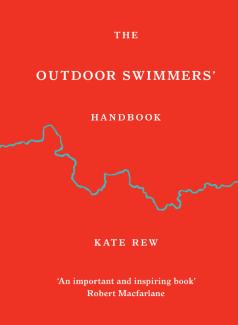
Signed copies of Kate Rew’s book, The Outdoor Swimmers’ Handbook, are available, with a wealth of information and inspiring features, at outdoorswimmingsociety.com.
